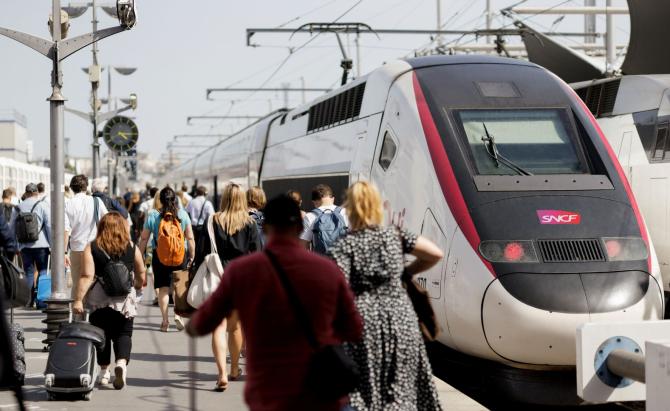On Monday March 27th, it was announced that French airports, subway and railway stations would turn off overnight luminous advertising devices in an effort to reduce energy consumption in France. ‘Sobriété énergétique’ or ‘moderate use of energy’, a decree passed in October 2022, dictates that luminous advertisements must be switched off between 1h and 6h in the morning. But airports, train stations and subway stations, which can operate outside these time slots, were up until now an exception.
SNCF and Aéroports de Paris, as well as advertising agencies such as JCDecaux and Médiatransports signed a “charter of commitment” on the sidelines of a meeting organized by the Ministry of Energy Transition and Transport to review efforts to reduce energy consumption.
According to Agence France Presse (AFP), the signatories commit to ensure that digital screens and backlit posters can be “turned off or put on standby during closing hours to the public”, by January 1st, 2024. “Obviously, it starts now,” the Minister Delegate for Transport, Clément Beaune, said. “But it is necessary to adapt many screens so that they can be put on standby mode. Sometimes they do not have such function.”
In an annex to the document, the SNCF commits to reducing the electricity consumption of its illuminated advertising by 71% in 2031 compared to 2022, and to reducing carbon emissions from these devices by 45% over the same period.
According to AFP, the French Agency for the Environment and Energy Management noted in 2020 that the 1,400 digital advertising screens in Paris metro and train stations consumed “as much electricity in one year as 21 schools with 10 classrooms”. It added that the annual greenhouse gas emissions of these 1,400 screens represented “as much as the emissions due to the use of the Paris metro by 20 million passengers”. According to the Brussels Times, environmental activists in France have covered several advertising screens in the past to bring attention to the urgency of energy consumption and associated carbon emissions.
In October of last year, prime minister Elisabeth Borne outlined energy consumption cuts that would help France decrease its reliance on Russian gas. Between 1h and 6h in the morning, digital advertisements had to show fixed images only. The measure was already applicable in cities with fewer than 800,000 inhabitants, with infringers risking receiving a fine of up to €1,500.













